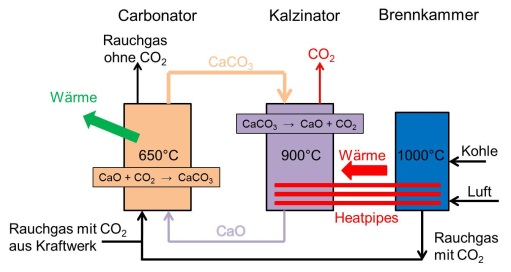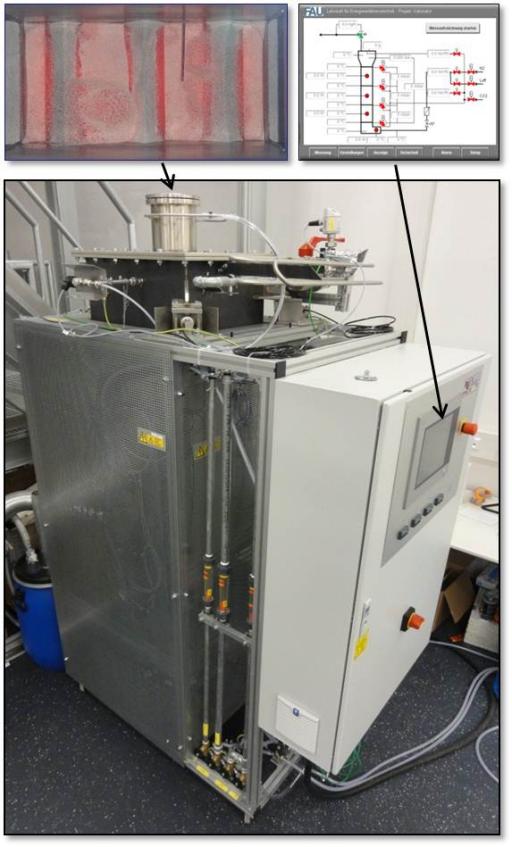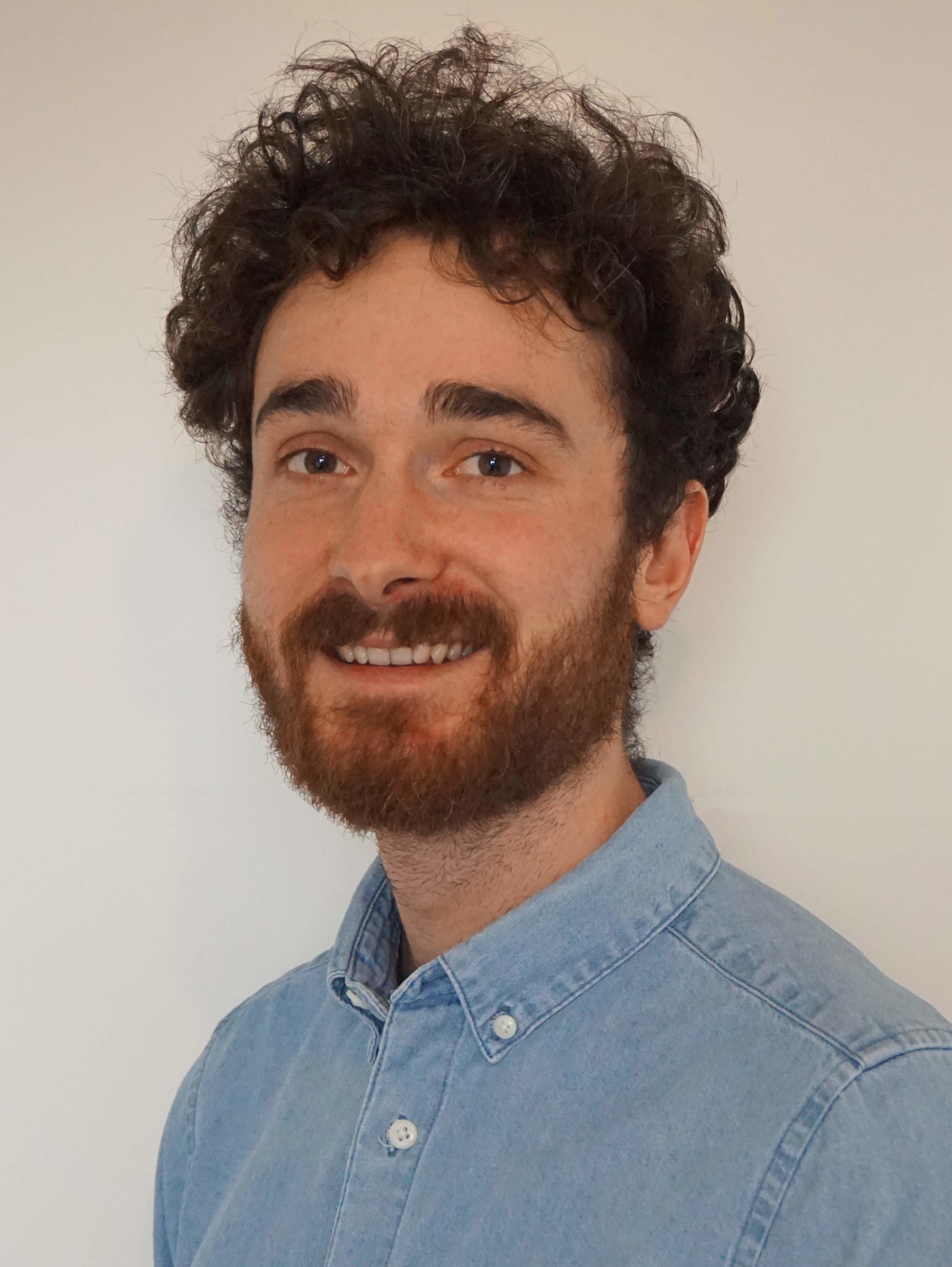CARINA
EU-project: CARINA – CO2-free electricity generation from fossil fuels
A promising method to reduce CO2 emissions from coal-fired power plants is the so-called carbonate looping process. The purified flue gas from a coal power plant is passed through a bed of calcium oxide (CaO). The CO2 reacts with calcium oxide at about 650 ° C to form calcium carbonate (CaCO3). This CaCO3 thus formed disintegrates in the so-called calciner at about 900 ° C. in CaO and CO2, which is thus ready for storage. Since the waste heat from this process can be used for steam generation, the efficiency losses compared to other CO2 separation processes are lower.
The research focus at EVT is on the RFCS project „CARINA“ (Carbon Capture by means of an Indirectly heated Carbonate Looping Process) With the processes in the indirectly heated calciner. The aim is to achieve a further reduction in the efficiency losses.


Contact Person:
Dr.-Ing. Sebastian Kolb
Department of Chemical and Biological Engineering
Lehrstuhl für Energieverfahrenstechnik
